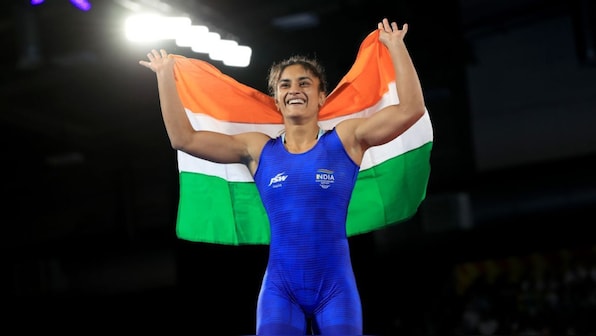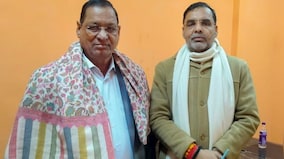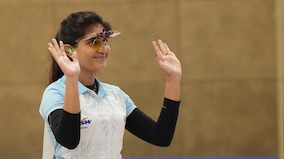For past 15 months or so, wrestling and its governing body in India (Wrestling Federation of India) have been in the news for all the wrong reasons. But it’s also the sport that has done the maximum to make India proud at the global level. Sure, it’s bereft of individual gold medallists like Abhinav Bindra and Neeraj Chopra, but kushti, as it is called in many local dialects, gave India its first individual Olympic medallist when KD Jadhav won bronze at the 1953 Helsinki Games.
Wrestler Sushil Kumar is India’s first two-time Olympic medallist in Individual events after winning silver at London 2012 and bronze at Beijing 2008.
In the last four editions of the Summer Games, India have clinched six medals in wrestling — the most in any sport. Majority of them have been won by male wrestlers with Sakshi Malik’s bronze at Rio being the only exception .
At the last Games in Tokyo, Ravi Dahiya won silver and Bajrang Punia clinched bronze as India touched it’s highest all-time tally of seven medals .
At Paris 2024, however, there will be no Ravi or Bajrang. Sakshi retired late last year after the reigning WFI president and close aide of former head Brij Bhushan Sharan Singh, Sanjay Singh, swept the elections .
In such a scenario one wonders what will be Indian wrestlers’ fate at the Paris Games and how will it impact the nation’s overall performance.
The qualifiers for the quadrennial event came to end on Sunday with India securing a total of six quotas , one less than the last time.
Not only has India’s representation come down as compared to Tokyo Olympics, the nation would only have one wrestler taking part in the men’s competition.
The Greco-Roman wrestlers have once again failed to win quotas but the representation in Men’s Freestyle field has come down from three to one.
In 2021, India had two medallists in men’s competition. At Paris, they will have only one man in contention.
That one man is Aman Sehrawat , (57kg) 20, former World U23 champion, Asian Championship and World Cadets gold medallist and Asian Games bronze medal winner.
The remaining five quotas have been won by women wrestlers – Antim Panghal (53kg), Vinesh Phogat (50kg), Anshu Malik (57kg), Reetika Hooda (76kg) and Nisha Dahiya (68kg).
There are many factors behind what many would see as a debacle.
The first and foremost that comes to mind is the wrestlers’ protest that resulted in almost no wrestling activity in the country last year as Olympic medallists hit the road against the WFI and its then president Brij Bhushan, who has been accused of sexual harassment.
But it was a bigger fight than the sport, against a corrupt system and systemic abuse. And the recent Delhi court instruction to frame charges against Brij Bhushan is vindication of the fact that such fights have to be fought.
What’s also interesting is that women wrestlers including Phogat, who spearheaded the protests , have made a record by securing five quotas, the highest-ever.
Read: There is no one like Vinesh Phogat
On the other hand, it’s the men who have failed to step up in the qualifiers.
Bajrang (65kg) after his long association of the protests was nowhere close to his best as he was eliminated in the national trials but Ravi (57kg) had ample time to prepare after withdrawing from the agitation quite early, but struggled with injuries.
Same can be said about Deepak Punia (87kg) — former U20 World Champion and World Championship bronze medallist — who lost in the first round of World Qualifiers in Turkey.
Sujeet Kalkal (65kg) and Jaideep Ahlawat (74kg) bowed out from the bronze medal matches in the qualifiers despite impressive wins en route.
And this is a sucker punch in a sport which has continuously delivered medals since Beijing 2008, with the men taking the lead.
The biggest hope now are the women wrestlers who have already defied the odds to make history.










)
)
)
)